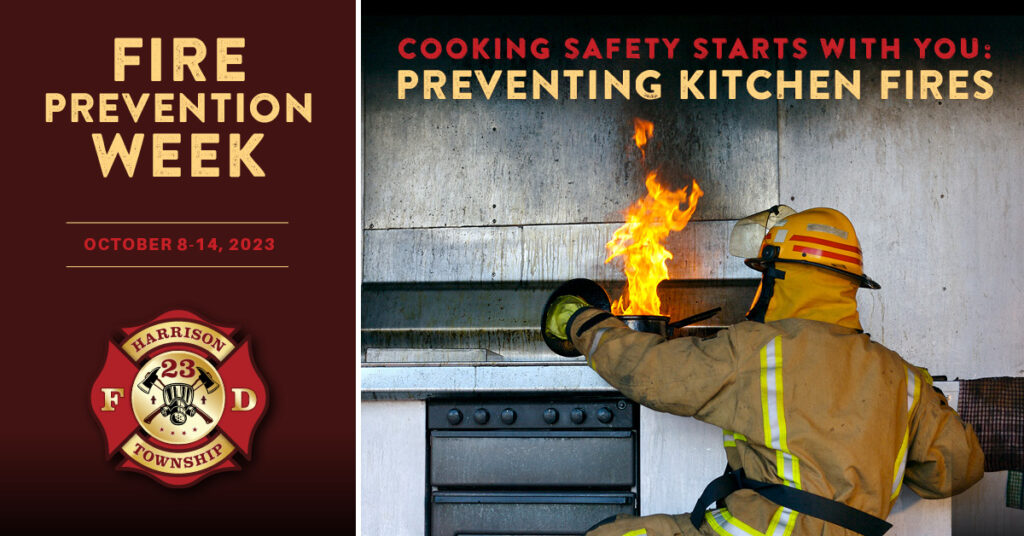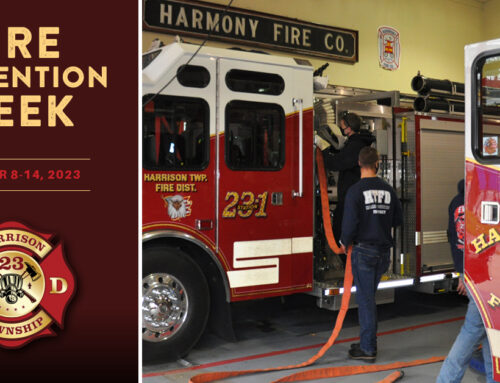
Cooking Safety Starts with You: Preventing Kitchen Fires
The kitchen is the heart of the home, a place where delicious meals are prepared, memories are made, and family and friends gather. However, it’s also a hotspot for potential fire hazards. The National Fire Prevention campaign reminds us that “Cooking Safety Starts with You.”
You Hometown Heroes at HTFD23 want you and your family to be always prepared while in the kitchen and preparing food. We’ll delve into the critical aspects of kitchen fire prevention, offering tips and best practices to keep you and your loved ones safe.
- Stay in the Kitchen – One of the leading causes of kitchen fires is unattended cooking. Always stay in the kitchen while you’re frying, grilling, or broiling food. If you need to leave, even for a short time, turn off the stove or oven.
- Use a Timer – It’s easy to lose track of time when cooking. Use a timer to remind you of cooking times and check your food regularly. Overcooked or burnt food can lead to smoke and fire.
- Keep Flammable Items Away – Keep dish towels, oven mitts, paper towels, and other flammable materials away from the stove. Loose clothing can also catch fire, so be mindful of what you wear while cooking.
- Clear the Area – Ensure there are no clutter or combustible items near the stovetop. This includes potholders, wooden utensils, food packaging, and curtains. Create a safe and clear workspace.
- Watch Your Clothing – Loose, long sleeves and dangling accessories can catch fire easily. Opt for short, close-fitting sleeves and avoid wearing jewelry or scarves that could get in the way.
- Turn Pot Handles Inward – Turn the handles of pots and pans inward while cooking to prevent accidentally bumping them or a child reaching up and pulling them down.
- Use Caution with Grease – When cooking with oil, use caution. If the oil starts to smoke, it’s too hot. Remove the pan from the heat source and allow it to cool before continuing.
- Keep a Lid Nearby – Keep a lid nearby when cooking on the stovetop. If a small grease fire starts, carefully slide the lid over the pan to smother the flames. Never use water to extinguish a grease fire; it can make it worse.
- Electrical Safety – Inspect electrical cords and outlets regularly for signs of wear or damage. Avoid overloading outlets with too many appliances and unplug small appliances when not in use.
- Install a Smoke Alarm – A smoke alarm in or near the kitchen can provide early warning in case of a fire. Ensure it’s working and has fresh batteries.
“Cooking Safety Starts with You,” and these tips can help you reduce the risk of kitchen fires. By being vigilant, staying focused, and taking proactive measures, you can create a safer cooking environment for yourself and your family. Remember, fire prevention is everyone’s responsibility, and together, we can keep our homes and loved ones safe from kitchen fires.


